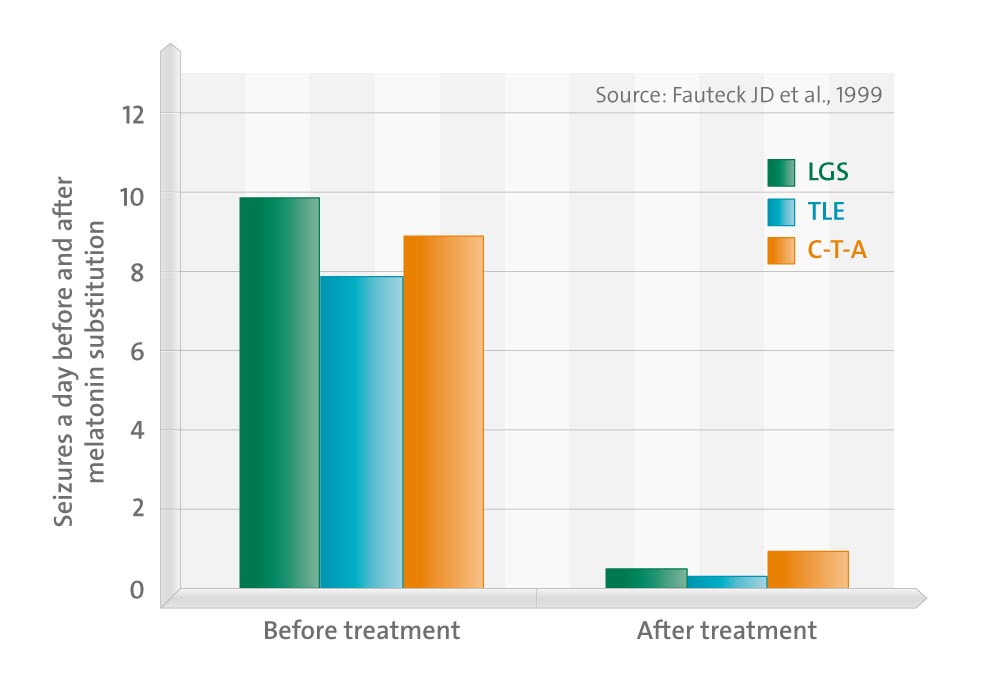At a single evening dose of 5-10 mg, melatonin (MLT), the pineal gland hormone, can exert a positive effect on the frequency of epileptic attacks in children with sleep disturbances of various etiologies.
We have shown that the sleep behavior can be normalized and an existing epilepsy can be favorably influenced. Pretherapeutic MLT secretion profiles can provide new information concerning the origin and treatment of these disturbances. In vitro experiments suggest that this effect might be the result of the interaction between MLT and MLT-specific receptors in the neocortex. Due to its favorable safety profile, MLT can be liberally administered in the specified doses and be considered as a useful antiepileptic drug.
